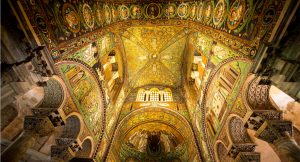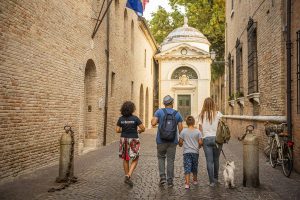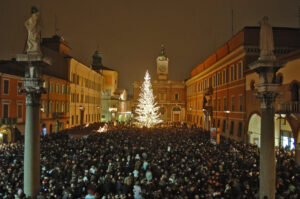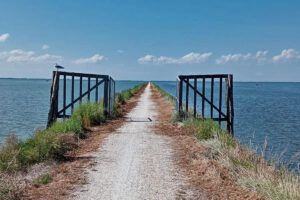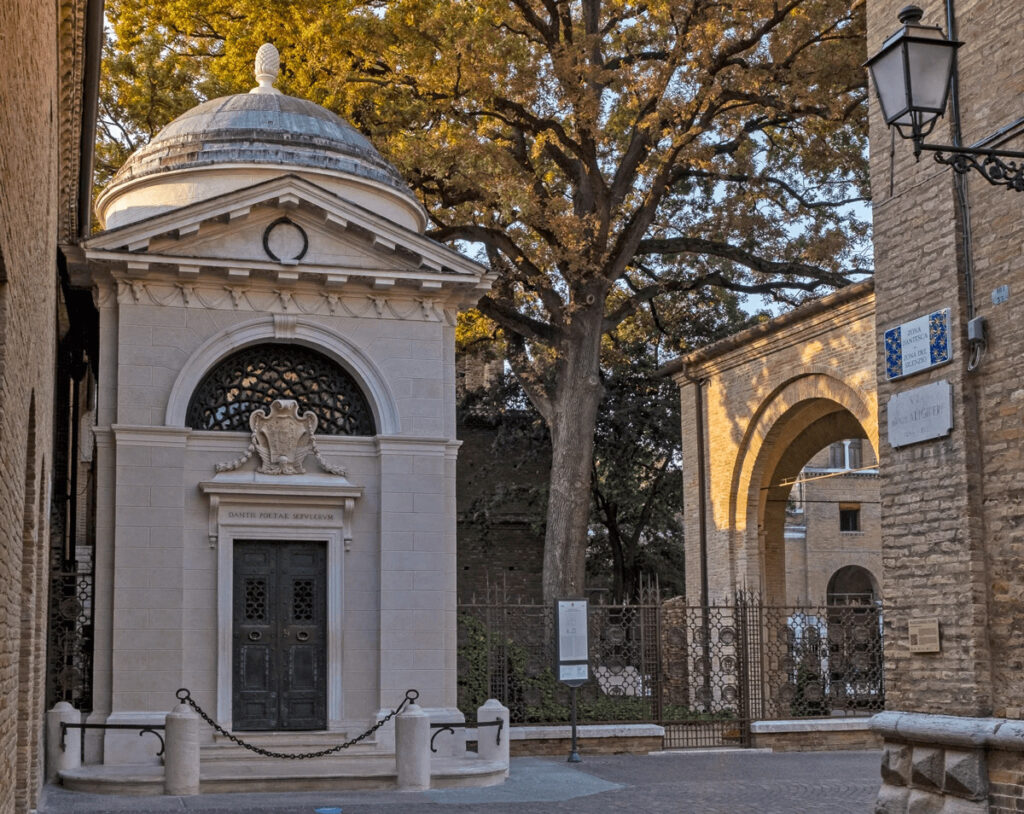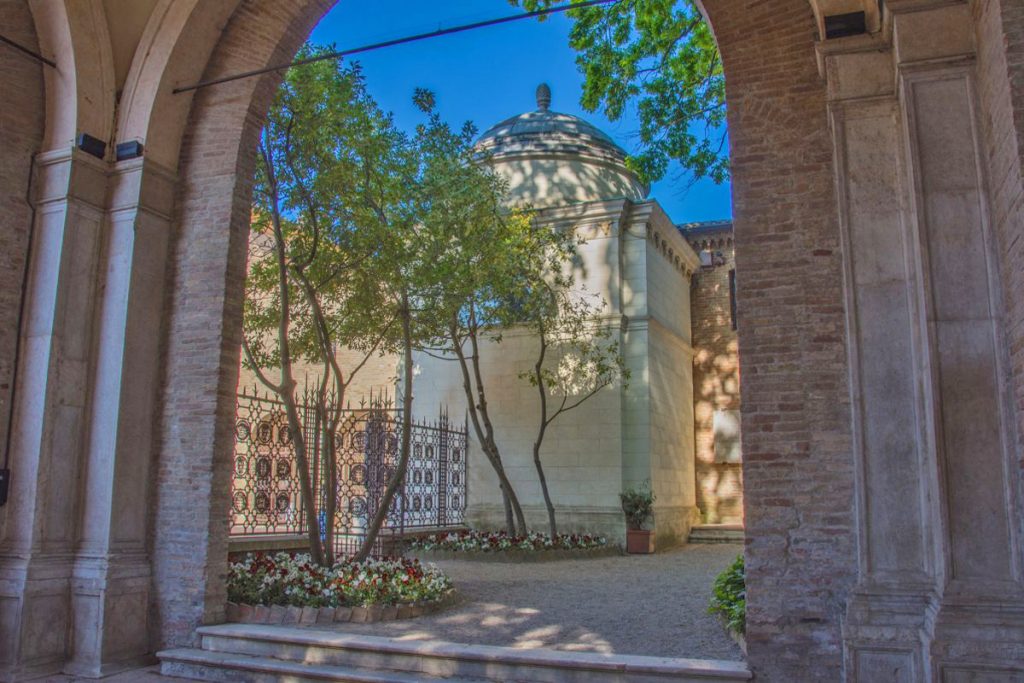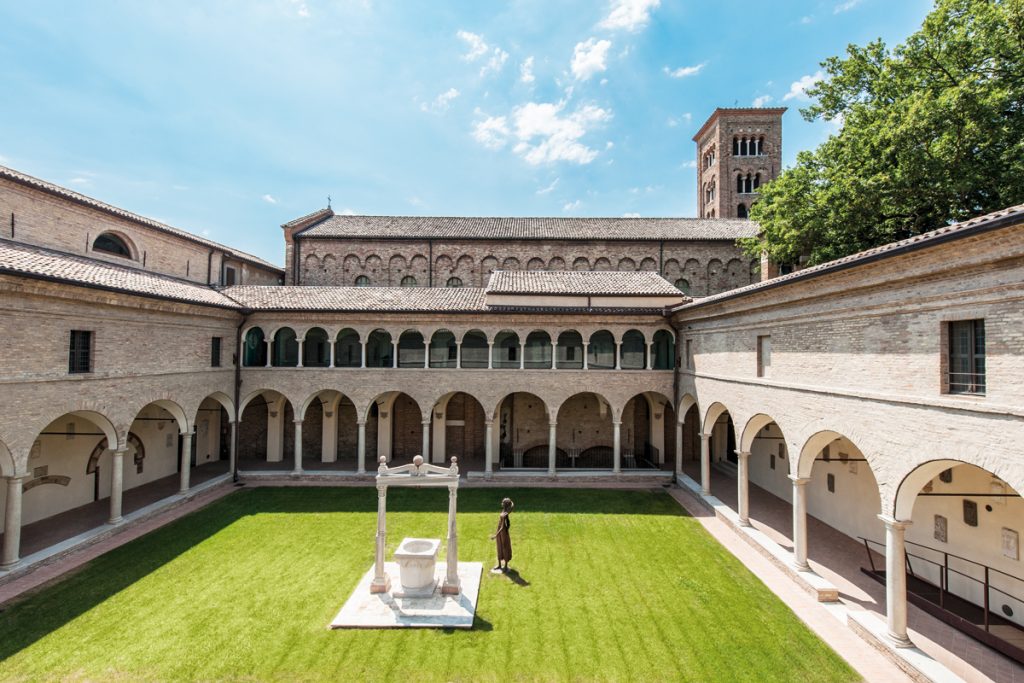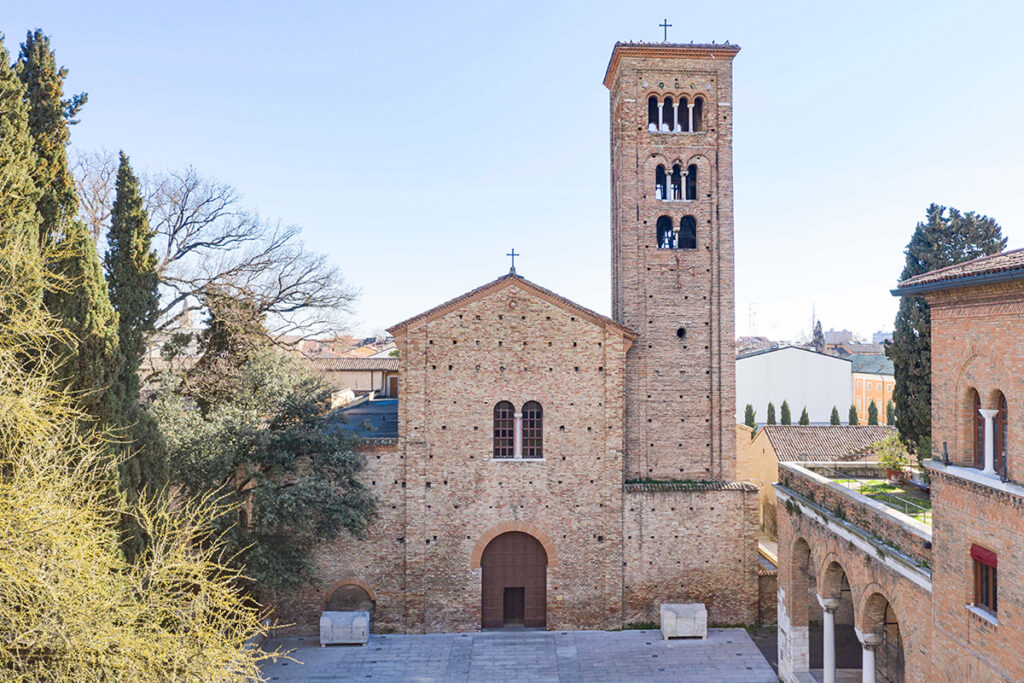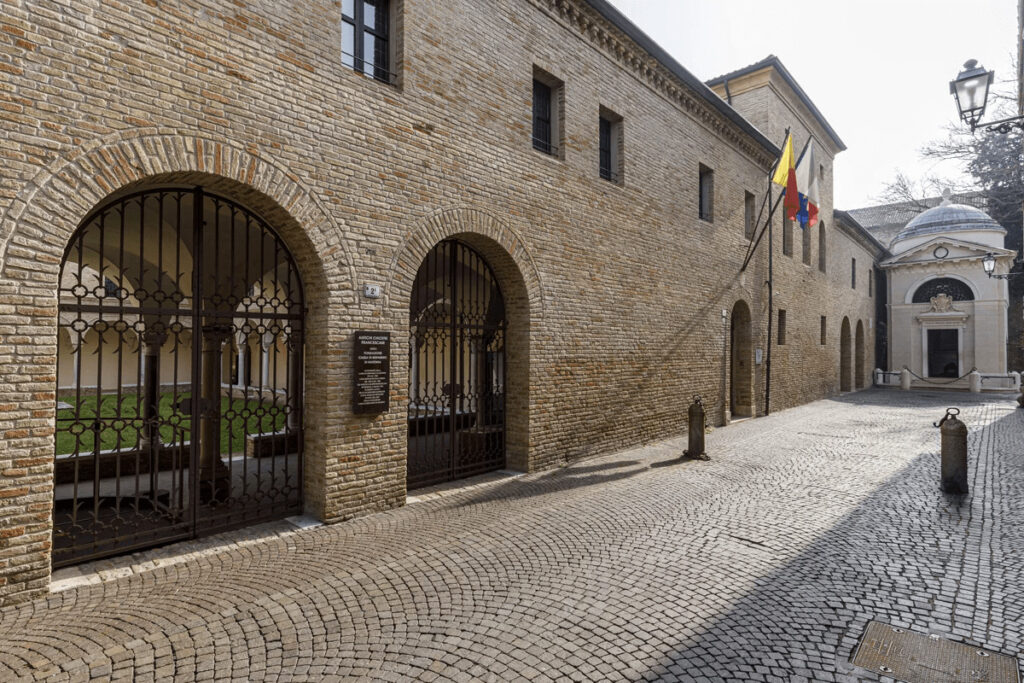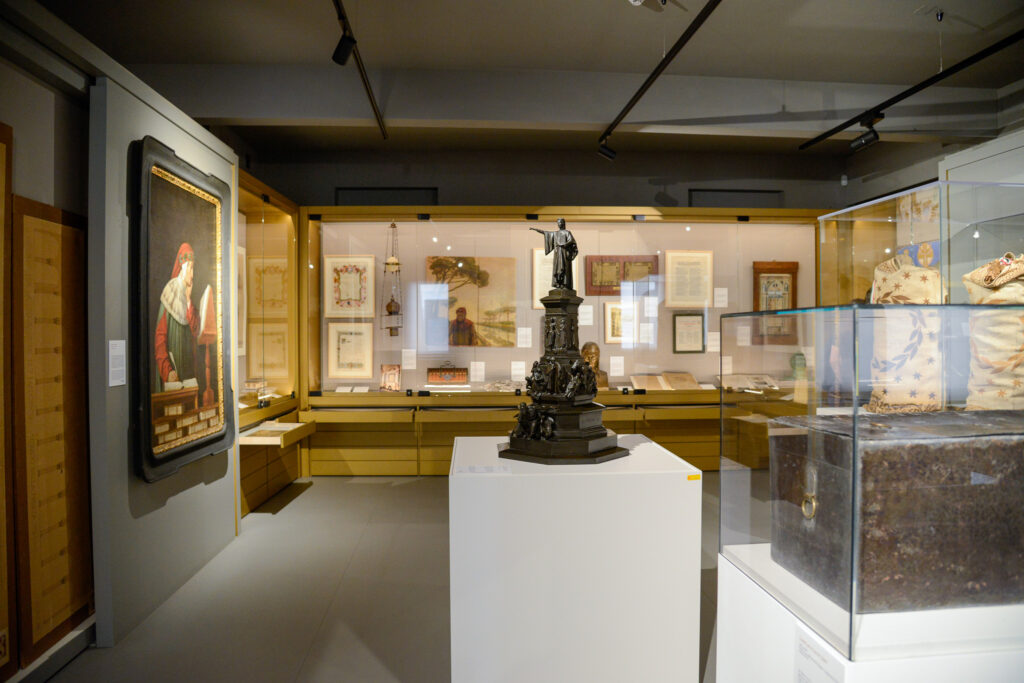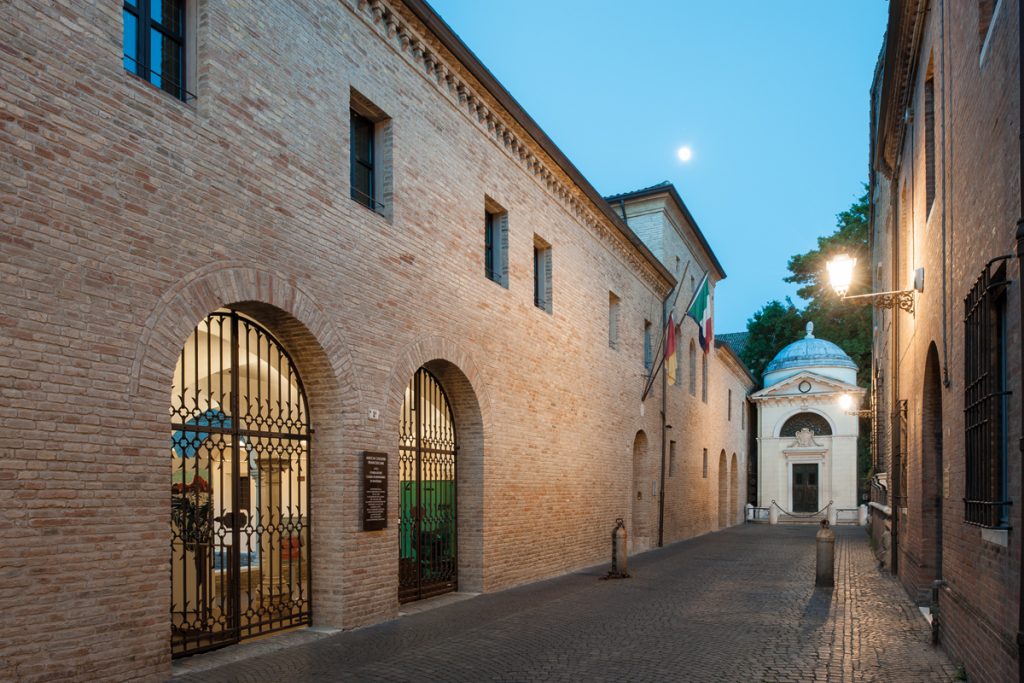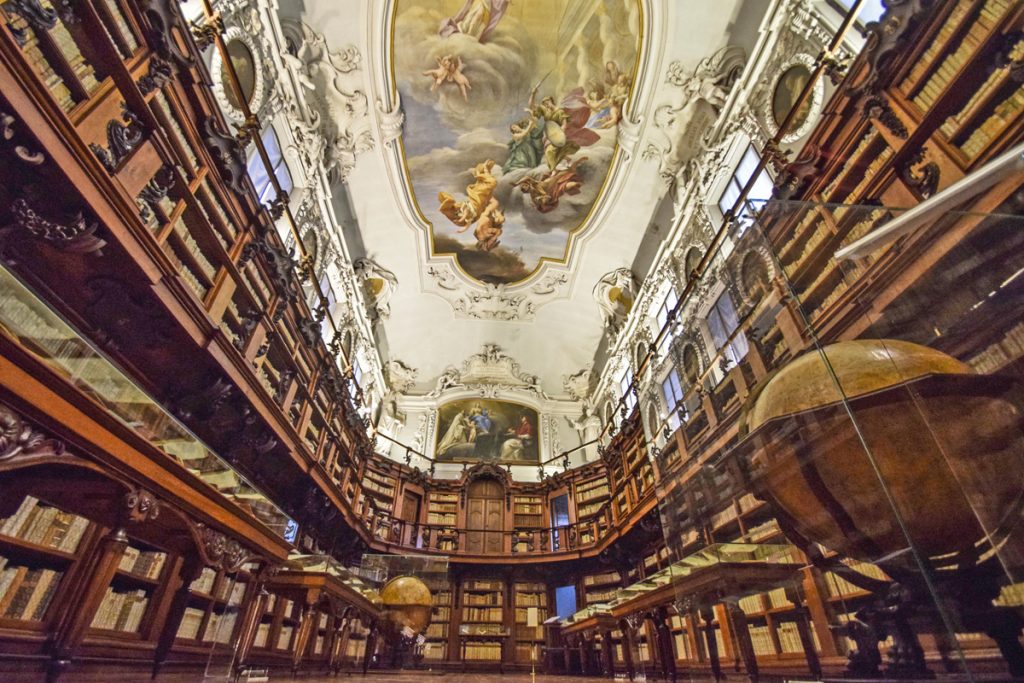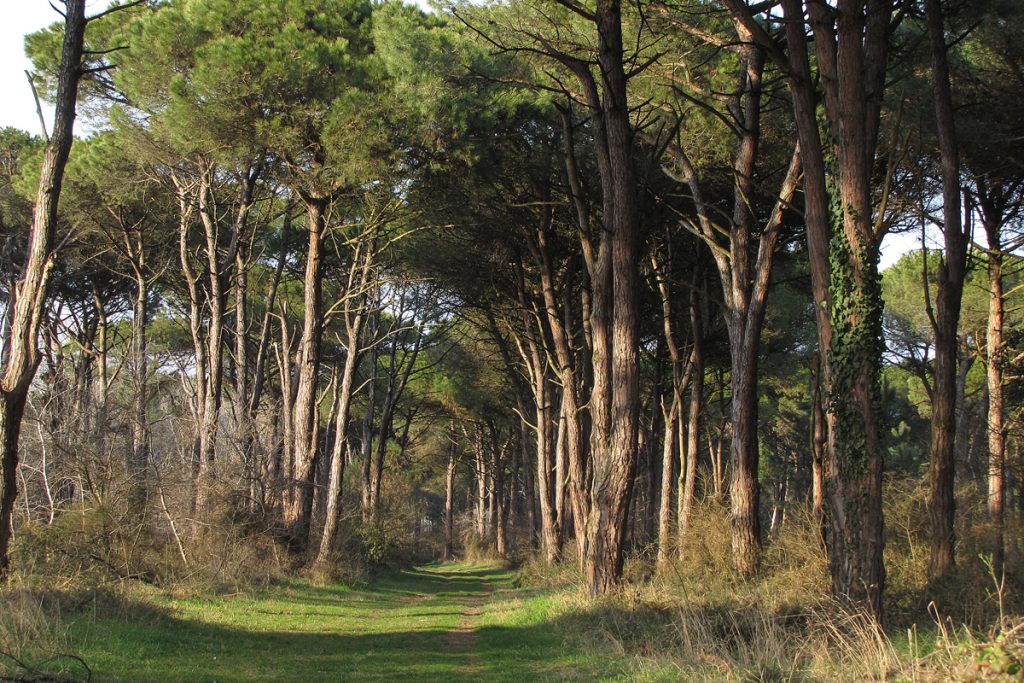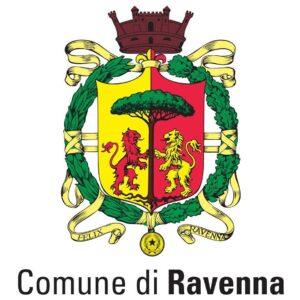We cannot be one hundred percent sure, but it’s very likely that during his last stay in Ravenna, Dante Alighieri visited the wonderful churches and basilicas of the city, today Unesco World Heritage, and that he admired the priceless treasures preserved inside.
Dante had already been in Ravenna before, presumably in 1303 and in 1310. He also wandered in the pine forest of Classe — «along the shore of Classe, through the pines» (Purgatorio, Canto XXVIII), which he describes as «forest-dense, alive with green, divine».
This is why Guido da Polenta, the lord of the city, did not trouble much to convince the Supreme Poet to come again to the ancient Byzantine capital in 1318, making it his last oasis of peace and tranquillity after his long wanders far from Florence.
Here, Dante Alighieri had the opportunity to be together again with his family, and to end his cherished Divine Comedy.
Of course, the chance to have a source of income, thanks to the representation assignments conferred on him by Guido Novello as his ambassador in Venice to doge Giovanni Soranzo helped to convince him.
